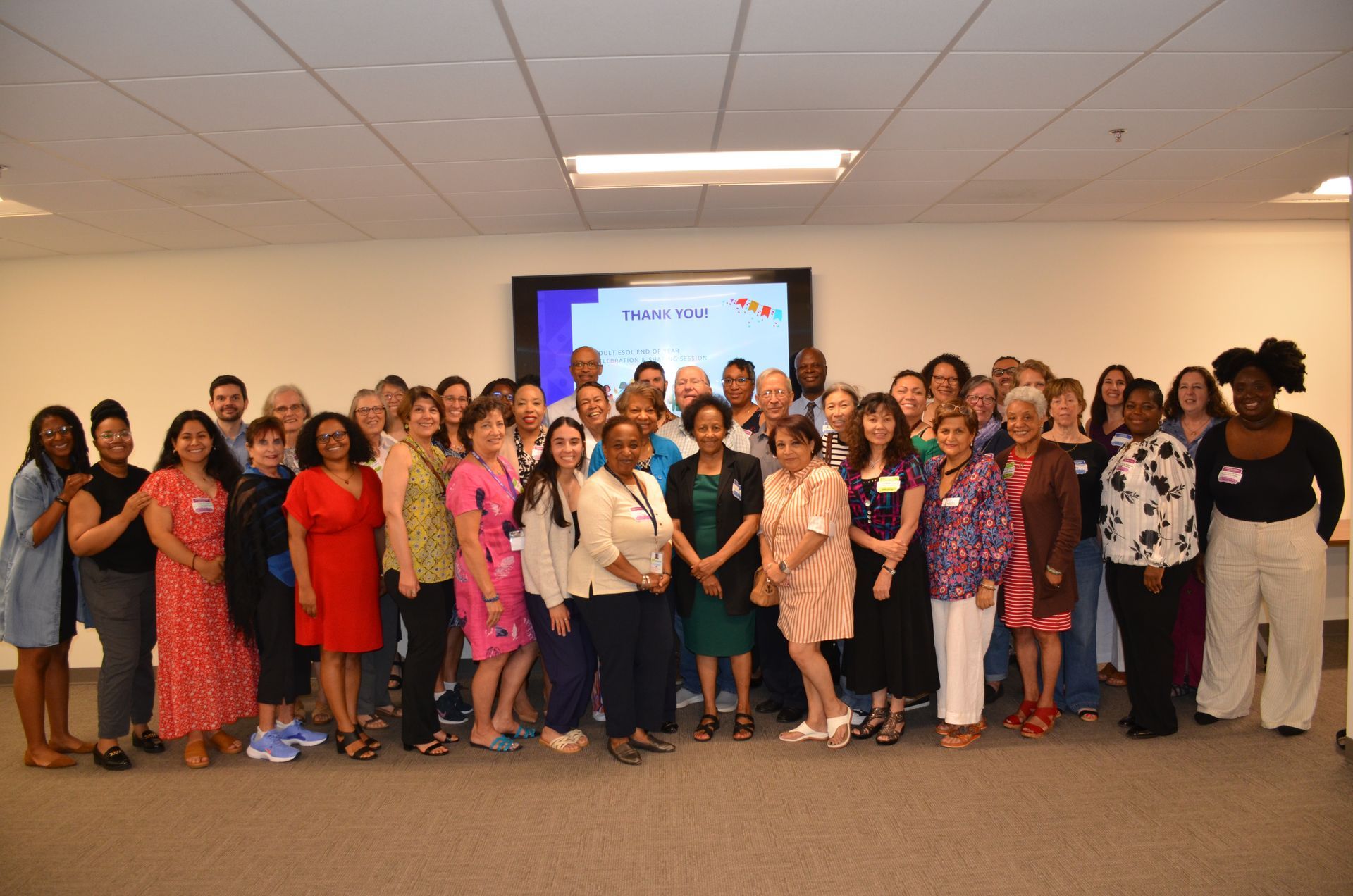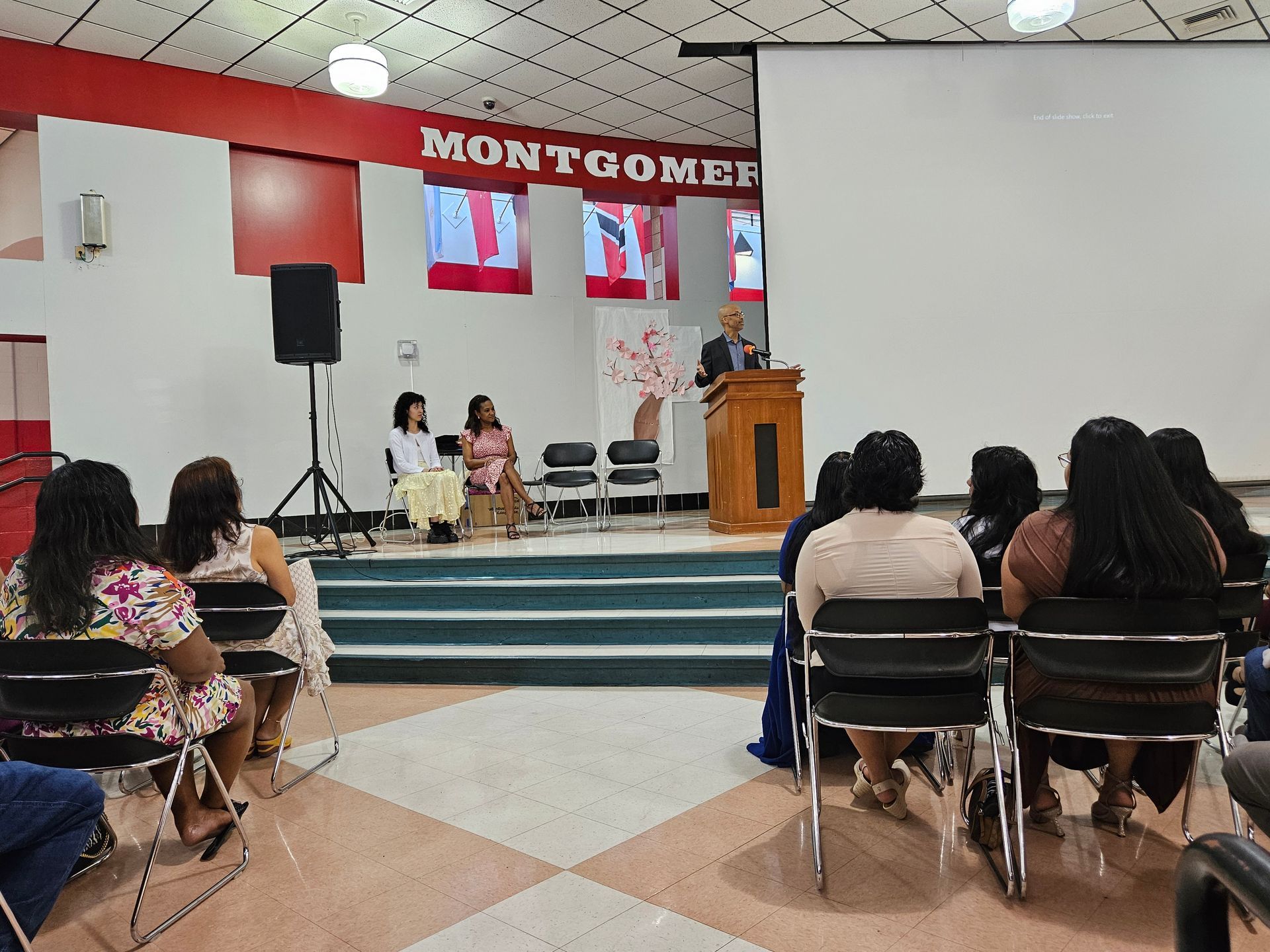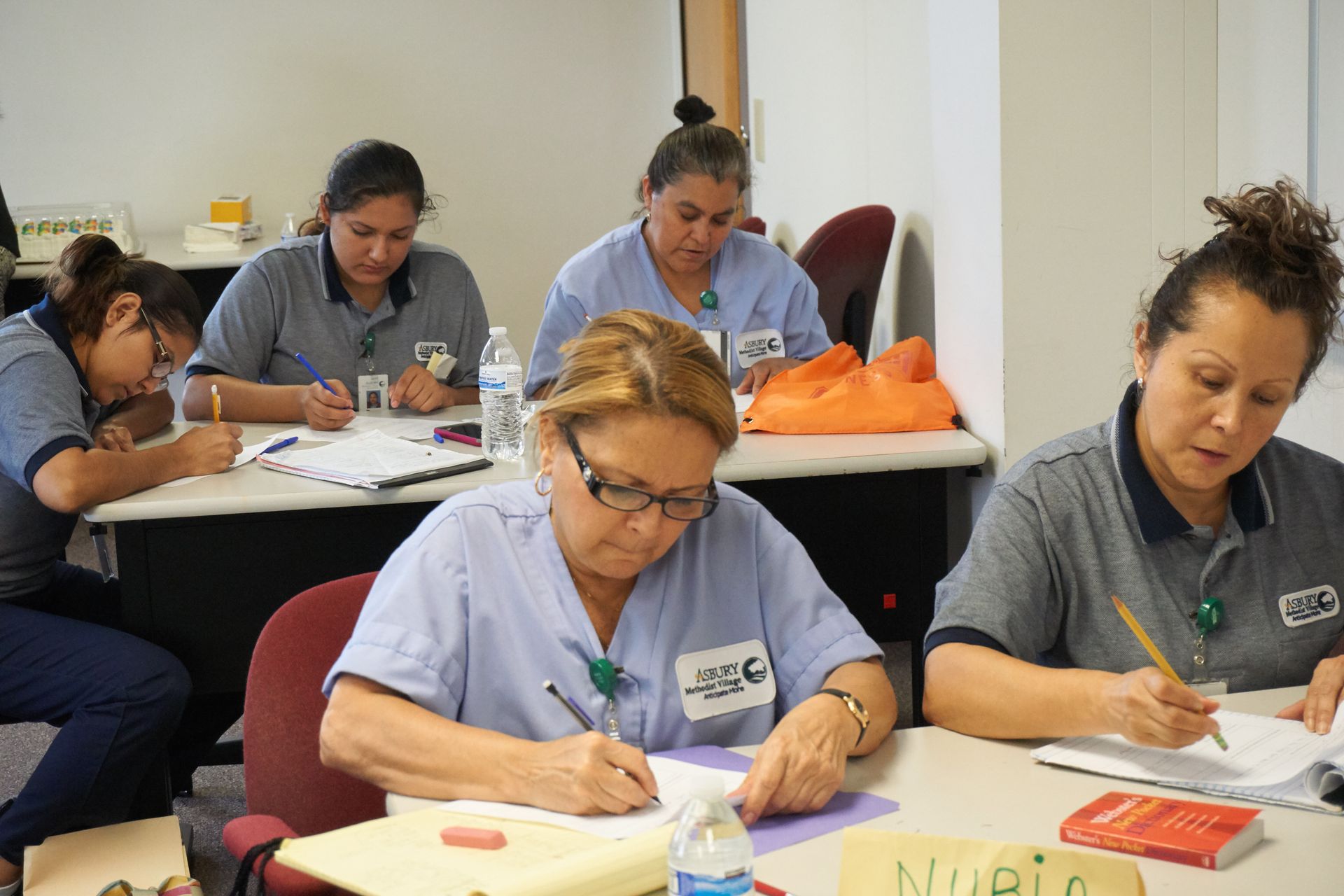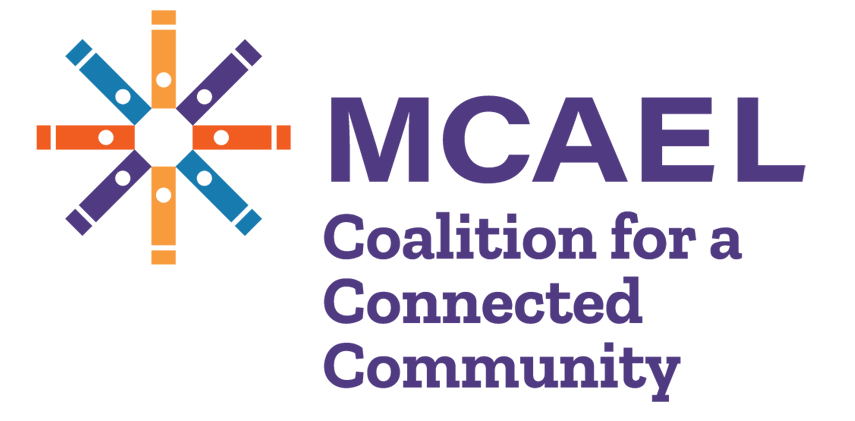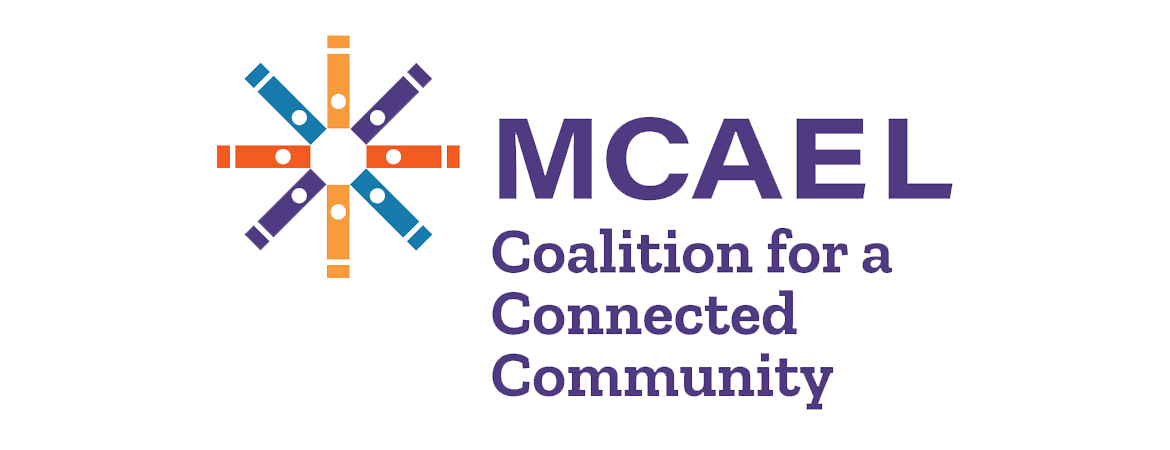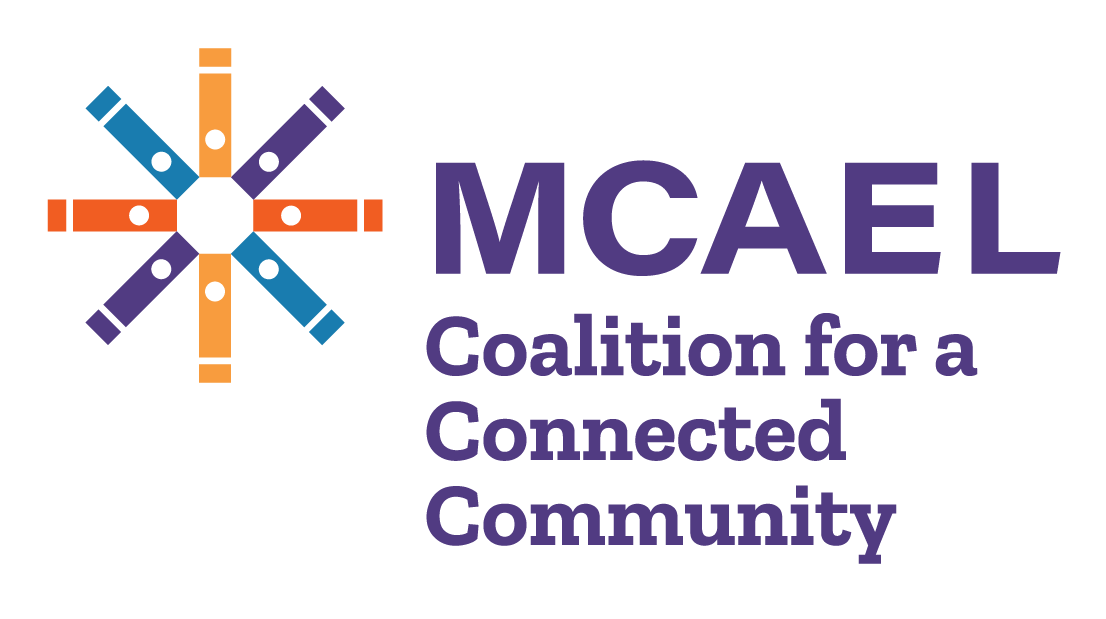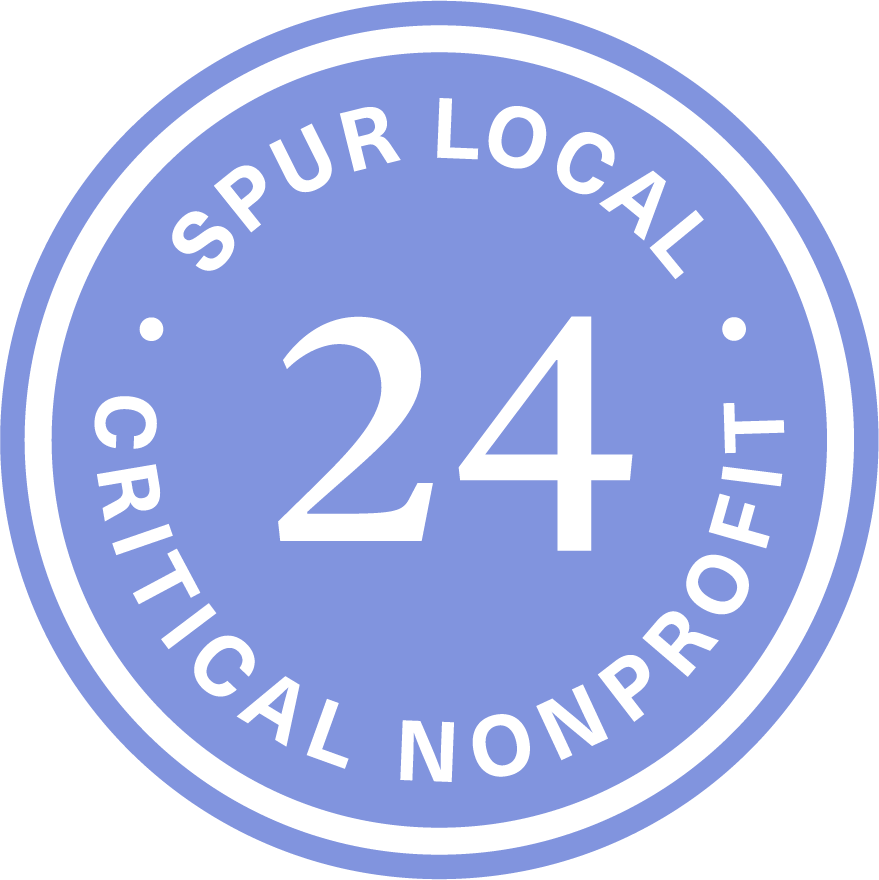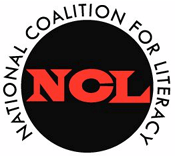Feeling at Home
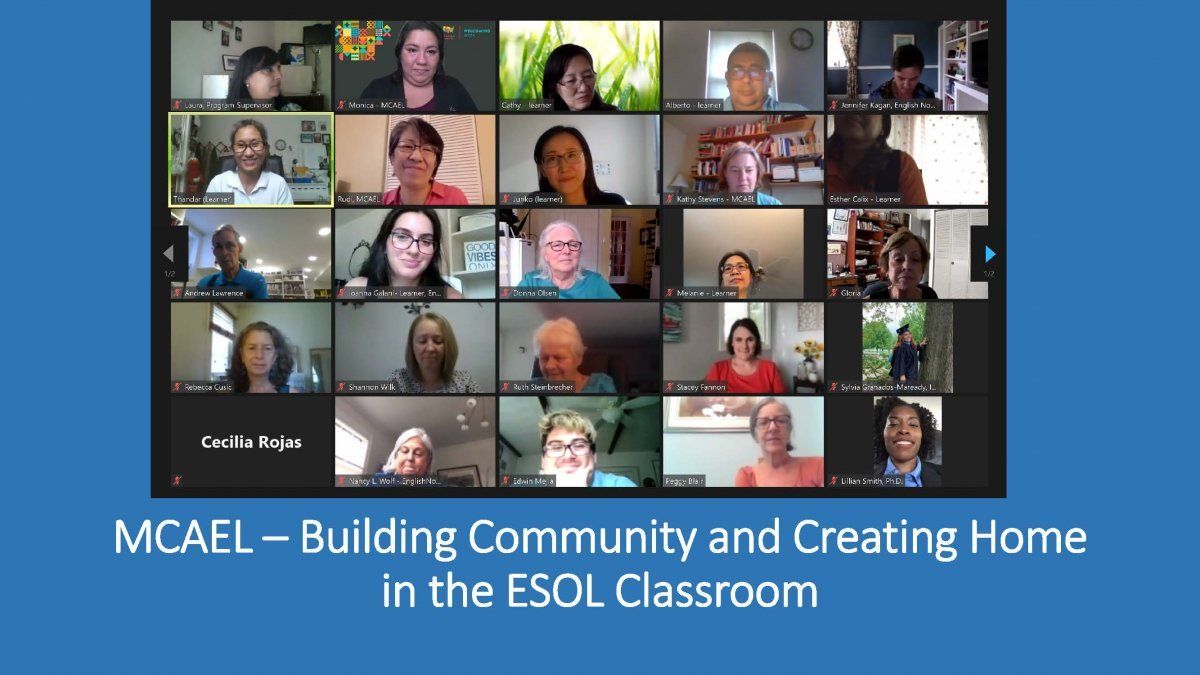
Written by Stacey Fannon, ESL Program Director, Briggs Center for Faith and Action
I remember seeing a picture from a potluck party last year that MCAEL hosted for Welcoming Week in 2019. All the participants were holding up signs which read “I’m a Welcomer.” This year I did not want to miss out on any of the fun even though there would be no potluck in 2020 and the events would all be virtual.
I attended three events: “Building Community and Creating Home in the ESOL Classroom” a MCAEL discussion with learners, providers and instructors, “Creating a Warm and Welcoming Online Classroom” with network member English Now! and a Zoom Social with Kathy Stevens, Executive Director of MCAEL.
At the event “Building Community and Creating Home in the ESOL Classroom” ESOL learners were asked how they felt going into the classroom for the first time and what instructors said or did to make them feel more comfortable. Learners recalled feeling fear and anxiety. One learner mentioned that she was ashamed of her English-speaking skills. All that changed when learners and instructors began to be vulnerable with each other. They were in class to support each other and to have fun together. Instructors tried to pronounce their learners’ names correctly. Learners tried to pronounce new vocabulary words correctly. Instructors and learners would both participate in icebreakers. If a learner did not understand something in English, their classmate who spoke the same native language would help translate. Eventually, the classroom started to feel like home. Recipes were shared. Stories were told. Games were played. Laughs were laughed.
At the event “Creating a Warm and Welcoming Online Classroom” facilitated by Jennifer Kagan, Director of Program Development at English Now!, participants identified the following words associated with “home”: comfortable, safe, non-judgmental and honest. Although everything has gone virtual, there are still opportunities to create human connection. It was pointed out that ESOL instructors can create comfortable, safe and honest classrooms by doing some of the same activities online as in-person. For example, instructors can still use icebreakers like “2 truths and a lie,” interviewing each other and have a “Show and Tell” online. We also discussed how story sharing, teaching each other, calling each other by name, playing games, listening to music, sharing recipes, watching funny videos, celebrating holidays, carving pumpkins, and laughing together can create home in the classroom .
I wrapped up the week with a Zoom Social hosted by Kathy Stevens from MCAEL. We listened to music together, looked at photos celebrating the week, talked about some of the highlights from the events. We all still need human connection, even if we can only do it online now. I certainly have learned ways to make my students feel at home in the ESOL classroom. You can still create home if you make the effort – even online!
